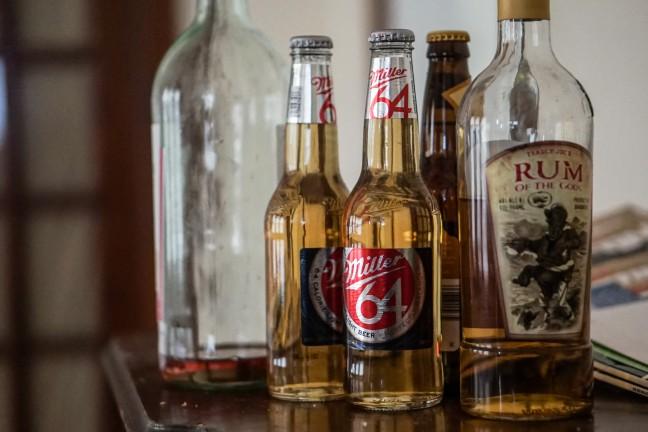With Halloween upon us, many University of Wisconsin students are gearing up for a weekend of partying and drinking. While drinking is often considered to be a normal part of the college experience, the UW campus and Wisconsin in general arguably have a drinking problem.
In 2018, USA Today created a list of the “20 drunkest cities in America,” with Madison coming in at number four. More concerning, however, is ten of the 20 spots, including the top four, were all cities in Wisconsin.
In Madison, specifically, events such as football games effectively encourage binge drinking, leading to the disruption of residents in Camp Randall’s surrounding neighborhoods.
Ald. Tag Evers of District 13 brought residents Josh Napravnik and John Perkins to the Alcohol License Review Committee’s meeting Oct. 16 to convey their worries and ask for advice regarding the disturbances that occur as a result of binge drinking on game days. Napravnik is part of the Dudgeon Monroe Neighborhood Association, and Perkins is part of the Greenbush Neighborhood Association.
Residents who live near Regent Street and Monroe Street often have to deal with the unpleasant effects of binge drinking on game days, such as public urination, vomiting and other disturbances, as expressed by Evers at the meeting.
In addition to these disturbances, there are more serious consequences that occur as a result of binge drinking in Wisconsin. The UW Public Health Institute estimated the annual cost of binge drinking in Wisconsin is $3.9 billion, with the majority of the cost coming from $2.6 billion in lost productivity.
Furthermore, in 2018, binge drinking in Wisconsin contributed to 2,845 alcohol-related deaths, 6,151 alcohol-related car crashes and 79,285 alcohol-related hospitalizations. While the rate of binge drinking in 2018 was 18% in the U.S. overall, Wisconsin boasted a binge drinking rate of 24%.
There have been efforts by both current and past legislators in Wisconsin to curb drinking culture. In 2018, former Madison Mayor Paul Soglin proposed the restriction of issuing any further liquor licenses in downtown Madison.
This came years after the city started enforcing an alcohol overlay district, which bans the issuing of new liquor licenses for bars and liquor stores on State Street and University Avenue, between Broom Street and Lake Street. The alcohol overlay does not restrict the issuing of alcohol licenses to restaurants, however.
The proposal was eventually dropped and instead led to a comprehensive study of alcohol density across the city. The study was actually just presented to the Alcohol License Review Committee Oct. 23.
According to the Wisconsin State Journal, the study revealed what may seem obvious to many: an increase in alcohol leads to an increase in problems.
As the number of places which serve alcohol increases, so does the number of police calls and inspection services needed, which creates both monetary and administrative consequences. Furthermore, an increase in liquor licenses was shown to correlate with an increase in emergency and fire department calls.
While alcohol may be a large part of Wisconsin’s culture, the reality is excessive alcohol consumption generally leads to negative results. Especially on college campuses, the pervasiveness and normalization of binge drinking is both concerning and unsafe.
College is a time to have fun, but it’s also a very significant time for the growth and development of young adults. Engaging in risky behaviors such as binge drinking can seriously impact a student’s life, and the peer pressure to do so in college does not help.
Binge drinking is a serious issue, and students, faculty and residents of Wisconsin need to recognize that. While Wisconsin may have a fun reputation as the land of beer and cheese, it’s important to recognize Wisconsin’s reputation as alcohol-obsessed is not healthy, and binge drinking can have real consequences.
Courtney Degen (cdegen@wisc.edu) is a junior studying political science and journalism.


